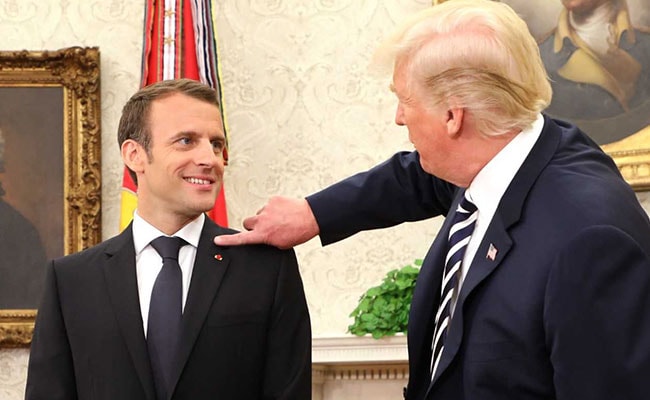Shinzo Abe, the prime minister of Japan, sped down to Mar-a-Lago soon after the election, where he gamely played a round of golf. Unfortunately, it didn't win him any special consideration when Trump announced sweeping aluminum and steel tariffs earlier this year, nor did it prevent the president from embarrassing him with inopportune tweets.
Prime Minister Theresa May of Britain also rushed to Washington to play nice and call for a "special relationship" just after the election, but she too has been attacked directly on the president's Twitter feed; worse, her performance at the White House - including a photograph holding the president's hand - has been regularly mocked by her own compatriots ever since. Angela Merkel, the German chancellor - too earnest and probably too horrified even to attempt to charm the American president - set out to woo his daughter. She invited Ivanka Trump to appear at a panel discussion alongside herself and several other distinguished female politicians; the result was that the president's daughter appeared foolish and out of place.
Others have given up being nice. Unable to keep up pretenses, the prime minister of Australia squabbled with Trump, who was having trouble understanding his immigration policy. That phone call ended badly: "I have been making these calls all day," said the American president, "and this is the most unpleasant call all day. Putin was a pleasant call. This is ridiculous." The president of Mexico canceled a visit, and now raises his popularity ratings by openly criticizing the American counterpart, as do most other politicians in Mexico.

This combination - flattery plus direct talk - hasn't yet been tried on Trump
He called for greater efforts on climate change - because "there is no planet B" - as well as "a more effective, accountable, and results-oriented multilateralism." He wasn't even subtle in his attack on Trump's backward-looking nostalgia and xenophobic language: "We can choose isolationism, withdrawal and nationalism . . . but that will only inflame the fears of our citizens." And, of course, he supported the Iran deal, which Trump has railed against as recently as this week.
This combination - flattery plus direct talk - hasn't yet been tried on Trump. The friendly gestures will appeal to his narcissism; there is a slim chance - very, very slim - that it might even get him to change his mind about some things. There is a greater risk that the clear opposition, even cloaked in elaborate references to Lincoln and both Roosevelts, might irk him.
But the most likely result is that the American president won't pay attention to what Macron was trying to say - indeed, that he won't even understand that he has been so openly challenged. And that may have been the point, for Macron's speech will be perfectly understood in France, in Europe, and even in the United States (at least outside the White House). It thus preserves the French president's dignity in the face of the dandruff incident. It preserves Europe's aspiration for an alliance with the America described in his speech, the America of Lincoln and both Roosevelts. It keeps the idea of transatlanticism alive. And if the president can't hear any of that - because Trump's interest in gestures and power games outweighs his interest in words - then maybe, given the circumstances, that's OK, too.
(Anne Applebaum is a Washington Post columnist, covering national politics and foreign policy, with a special focus on Europe and Russia. She is also a Pulitzer Prize-winning historian and a professor of practice at the London School of Economics. She is a former member of The Washington Post's editorial board.)
Disclaimer: The opinions expressed within this article are the personal opinions of the author. The facts and opinions appearing in the article do not reflect the views of NDTV and NDTV does not assume any responsibility or liability for the same.
(This story has not been edited by NDTV staff and is auto-generated from a syndicated feed.)


